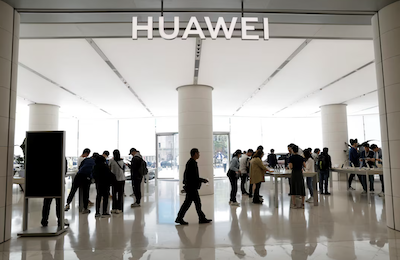Asian stocks slipped on Tuesday with all eyes on central banks in the US, Europe and Japan as investors weighed up the chances of rate cuts anytime soon.
Heightened expectations of an imminent European rate cut helped whet risk appetite but trumping that optimism was the looming release of key inflation readings this week.
Japan’s Nikkei share average edged lower as investors weighed the likely timing of further Bank of Japan policy tightening, while chip-related stocks retreated after last week’s gains.
Also on AF: China Investing in Africa Again, Focus on Key Energy Minerals
The Nikkei slipped 0.11% to 38,855.37 as of the close, although winners and losers were balanced, with 120 stocks rising versus 101 that fell, with four flat.
The broader Topix declined 0.08%, with an index of growth shares sliding 0.37%, while value shares added 0.50%.
The BOJ’s next policy-setting gathering is scheduled for June 13-14, and investors are wary of a hawkish outcome as a weakening currency has seen officials including Governor Kazuo Ueda take more hawkish stances.
Banking shares continued their rally on the prospect of higher interest rates buoying profits from lending and investing. The Topix banking index added 1.47% to reach the highest since December 2007.
At the other end, chip-sector shares, which rose after Nvidia’s bullish earnings last week, took a step back.
Chinese stocks dipped too as traders waited on crucial inflation data that will likely impact global interest rates.
China’s blue-chip CSI300 index was down 0.73% with, earlier in the session, its financial sector sub-index lower by 0.4%, the consumer staples sector down 0.44%, the real estate index down 1.02% and the healthcare sub-index down 0.21%.
The Shanghai Composite Index lost 0.46%, or 14.47 points, to 3,109.57, while the Shenzhen Composite Index on China’s second exchange slipped 1.08%, or 18.91 points, to 1,728.93.
China Home-Buyer Boosts
Meanwhile, Hong Kong shares saw an early uptick due to China’s latest housing policy before returning all its gains.
In the latest move, China’s commercial hub Shanghai lowered the minimum downpayment ratios for home-buyers and relaxed some home purchase restrictions, after the country lowered the national level in a market stabilising effort earlier this month.
Chinese H-shares listed in Hong Kong – stocks belonging to companies from the Chinese mainland – rose 0.65% to 6,731.29, while the Hang Seng Index dipped 0.03%, or 6.19 points, to 18,821.16.
Elsewhere across the region, in earlier trade, Sydney, Seoul, Mumbai, Wellington, Manila and Bangkok fell, though Singapore, Taipei and Jakarta edged up.
MSCI’s broadest index of Asia-Pacific shares outside Japan rose 0.2% after a 0.9% increase on Monday as Taiwanese shares climbed 0.5% to a record high.
Europe was set for a slightly stronger open, with Eurostoxx 50 futures up 0.2%. That would build on gains overnight after a slew of European Central Bank officials said the ECB has room to lower interest rates as inflation slows.
With debate now shifting to subsequent moves, markets have fully priced in two rate cuts by October this year. That in turn guided Wall Street stock futures higher ahead of the reopening of US markets after a public holiday.
S&P 500 futures rose 0.1% and Nasdaq futures gained 0.2%.
Japanese Yen Steadies
The big risk events this week are not due until Friday when US figures on core personal consumption expenditures (PCE) – the Federal Reserve’s preferred measure of inflation – and eurozone inflation data will set the tone for trading.
In foreign exchange markets, the dollar was on the back foot for a third straight session, last down 0.1% against its major peers, as traders awaited the PCE release.
The Japanese yen steadied at 156.78 per dollar, just a touch stronger than the key 157 level. It, however, kept weakening against a slew of high-yielding currencies, with the New Zealand dollar hitting a fresh 17-year top of 96.56 yen on Tuesday.
The cash Treasuries market returned from a holiday with little movement after taking a hit last week.
Two-year yields fell 1.6 basis point to 4.9375%, having surged 13 bps the previous week, while the 10-year yield slipped 1 bp to 4.4610%, after rising 5 bps the week before.
Oil prices extended gains from the previous session. Brent futures rose 0.2% to $83.23 a barrel. US crude futures for July were at $78.84 a barrel, up 1.4% from Friday’s close, having traded through the US holiday.
Gold prices climbed for a third day, up 0.1% at $2,352.20 per ounce.
Key figures
Tokyo – Nikkei 225 < DOWN 0.11% at 38,855.37 (close)
Hong Kong – Hang Seng Index < DOWN 0.03% at 18,821.16 (close)
Shanghai – Composite < DOWN 0.46% at 3,109.57 (close)
London – FTSE 100 < DOWN 0.11% at 8,308.83 (0935 BST)
New York – Dow <> CLOSED (Monday)
- Reuters with additional editing by Sean O’Meara
Read more:
Inflation Indicators in Japan Drop Below 2% in April
China Central Bank’s Bond Trading Goal Hit by ‘Asset Famine’
China Evergrande EV Unit Stocks Turbocharged by Liquidator Deal
Nikkei Rallies on Bond Boost, Hang Seng Gains on Profits Lift
























